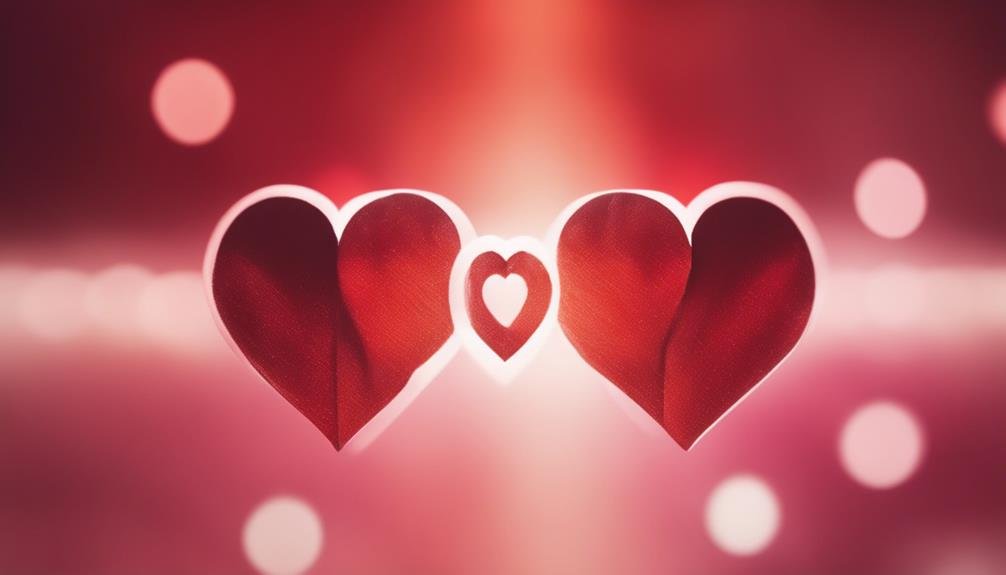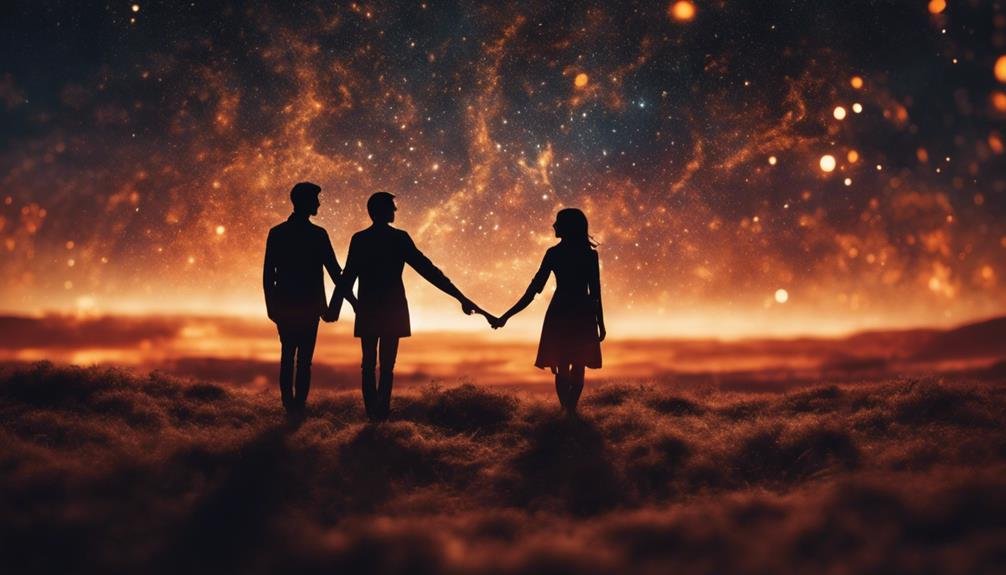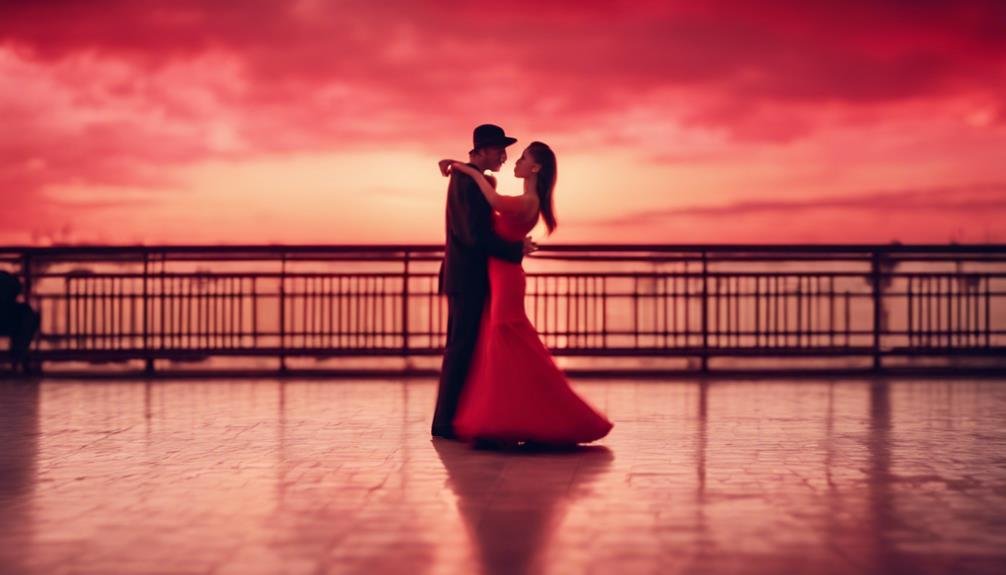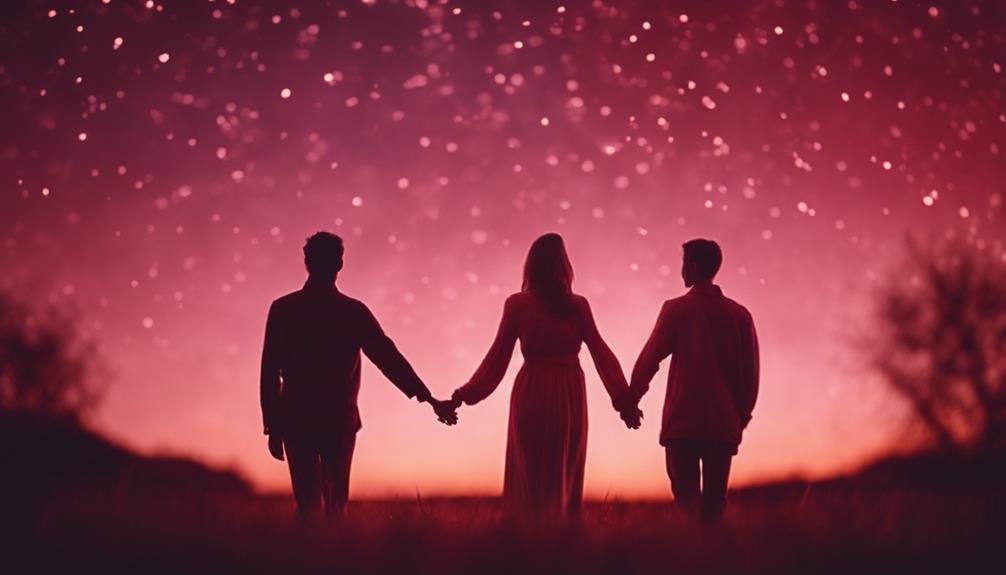You've likely encountered quotes that slice through the fog of emotion, distinguishing lust from love. While lust can ignite with the ferocity of a wildfire, love, in contrast, often builds and endures like a slowly nurtured flame. Consider how these words resonate with your own experiences. Are you swayed more by the immediate, though ephemeral, thrill that lust promises? Or do you find deeper solace in the enduring bonds that love strengthens over time? Reflect on this as we explore how various cultures, philosophers, and artists have grappled with this dichotomy through their timeless words. What might their insights reveal about your own feelings and choices?
Key Takeaways
- Quotes on lust often emphasize its intense, fleeting nature, highlighting physical attraction and desire.
- Love quotes focus on deep emotional connections, enduring commitment, and mutual respect.
- Contrasting quotes illustrate how lust can be consuming and immediate, while love is nurturing and grows over time.
- Literary and artistic quotes explore the complexity and interplay between lust and love, revealing different cultural and philosophical insights.
- Philosophical quotes may reflect on the transformation of lust into love, examining the spiritual and moral dimensions of relationships.
Defining Lust and Love

Lust often focuses on satisfying one's desires, whereas love prioritizes the well-being and happiness of the other person. When you're caught up in lust, it's all about the intensity of the moment—those passionate emotions and physical attractions that seem to demand immediate satisfaction. You might feel an overwhelming urge to connect, but these feelings are typically surface-level and short-lived.
On the other hand, love digs deeper. It's not just about what you feel, but also how you value and respect the other person. Love means putting their needs, desires, and life goals alongside, or even before, your own. It's about building something lasting, not just relishing a fleeting thrill. You'll find yourself wanting to listen, understand, and support them through life's ups and downs.
While lust can be thrilling, it doesn't carry the commitment and partnership that love does. Lust is like a sparkler—bright and exciting but quickly burns out. Love, however, is like a steady flame that warms and lights the way for a lifetime. So, when you're maneuvering your feelings, it's essential to distinguish whether you're driven by a momentary desire or genuine affection for the other person.
Historical Perspectives
While examining lust and love, it's helpful to explore how these concepts have been perceived throughout history. You'll find that the ancient Greeks had a nuanced view, distinguishing between different types of love, such as eros (sexual passion) and agape (selfless love). Philosophers like Plato discussed these with regards to beauty and desire, suggesting that eros helps the soul recall knowledge of beauty, and consequently leads to an appreciation of spiritual truth.
In medieval times, the concept of courtly love emerged in Europe, emphasizing nobility and chivalry. Lust was often viewed negatively, a sinful impulse that contrasted with the purity of love. This perspective was heavily influenced by Christian theology, which promoted the idea of love as a divine connection and lust as a base, earthly temptation.
Moving to the Renaissance, humanist thinkers began to celebrate the beauty of the human body and the pleasures it could bring. Lust wasn't always seen as something to be shunned but was often portrayed as a natural part of human experience that, when properly managed, could coexist with genuine love.
This historical journey shows how cultural contexts shaped the understanding of these deep, complex emotions, influencing how you perceive them today.
Contemporary Voices
Today's discussions around lust and love are shaped by a diverse array of voices, each offering fresh insights into these age-old emotions. You're witnessing a vibrant era where modern thinkers dissect the nuances between these powerful drives. Social media influencers, podcasters, and bloggers now contribute greatly to this dialogue, bringing real-time, relatable experiences that resonate with you. They often explore how societal norms and digital connectivity influence personal relationships, adding layers to your understanding of lust and love.
Experts in psychology and relationship counseling are also essential. They provide you with a blend of empirical research and practical advice, helping you navigate the complexities of your emotions. Their contributions are vital in understanding the psychological underpinnings of lust and love, and how each can either foster deep connections or lead to emotional turmoil.
You also can't ignore the role of everyday conversations. The stories shared by friends, the debates you have over coffee, or the confessions whispered late at night—all paint a broader picture of how people today experience and differentiate lust from love. These stories, rich with personal anecdotes, make sure that the exploration of lust and love remains grounded in everyday realities.
Literary Expressions
Throughout history, authors have vividly captured the tumultuous dance between lust and love in their literary works. You've likely felt the tension in their words, the push and pull of desires that characterizes so many classic tales. Shakespeare, with his keen insight into human nature, often explored this theme. In 'Romeo and Juliet,' you witness young love that blurs the line between passionate lust and profound love. It's a reminder that the two can be dangerously intertwined.
You see, when you immerse yourself in novels like 'Wuthering Heights' by Emily Brontë, the raw emotions of Catherine and Heathcliff's relationship are laid bare. Their connection oscillates between love and lust, painting a picture of passion that's both enthralling and cautionary. These stories resonate because they reflect your own experiences and confusions, where the heart and the senses often disagree.
Authors use their narratives to suggest that love is purer, a deeper connection that outlasts the fleeting heat of lust. Yet, they don't shy away from depicting lust as a powerful force, capable of driving characters to madness. It's this portrayal that grips you, urging you to question where you draw the line in your own life.
Philosophical Insights

Philosophers have long debated whether true love can exist without lust, urging you to ponder the depths of your own relationships. As you reflect, consider Plato's notion of spiritual love transcending physical desires. He argues that true affection focuses on the beauty of a soul, not the body. Does this idea resonate with you when you think about your deepest connections?
Aristotle takes a slightly different angle, suggesting that love is about finding a virtuous partner with whom you can share your life and grow. He insinuates that while lust may initially draw you together, it's the admiration of each other's character that sustains a lasting bond. Do you find this to be true in your experience?
Then there's the existential perspective, championed by thinkers like Jean-Paul Sartre, who propose that love can often feel like a battle between wanting freedom and seeking closeness with another. This tension, they argue, is central to human relationships. It's a challenging viewpoint, but does it mirror the complexities you've encountered in love?
As you mull over these philosophical insights, you're invited to question the balance of lust and love in your life. Are they battling forces, or do they harmoniously coexist?
Psychological Viewpoints
Exploring the psychological perspectives, we investigate how psychologists understand the interplay between lust and love in human relationships. You might find it fascinating that psychologists often define lust as driven primarily by sexual desire and biological urges, primarily regulated by hormones like testosterone and estrogen. It's that initial surge of attraction that can feel overwhelming and purely physical.
On the other hand, love is viewed as a more complex, enduring bond that includes emotional attachment and affection, beyond just sexual attraction. It involves a cocktail of neurotransmitters, including dopamine, oxytocin, and serotonin. These chemicals contribute to feeling bonded and connected over a longer period. You're not just drawn to someone physically; you also cherish their company and feel a deep emotional closeness.
Psychologists suggest that while lust can evolve into love, it doesn't always make that leap. You might experience lust that fades as quickly as it flared without developing deeper feelings. Or, you might start with a strong physical attraction that grows into a profound, lasting partnership. Understanding this can help you navigate your relationships more wisely, recognizing whether you're feeling a fleeting desire or a potential long-term connection.
Cinematic Interpretations

Films often depict the dramatic tension between lust and love, revealing how these emotions drive characters' actions and decisions. As you watch these movies, you're drawn into the complex interplay of desires that test the boundaries of relationships. Whether it's the passionate, fleeting encounters or the deep, enduring connections, cinema explores these themes with a richness that both entertains and educates.
Here's a table showcasing some iconic films that encapsulate these themes:
| Film | Theme | Insightful Quote |
|---|---|---|
| "Casablanca" | Love | "We'll always have Paris." |
| "Fatal Attraction" | Lust | "I'm not going to be ignored, Dan!" |
| "Titanic" | Love vs Lust | "You jump, I jump, remember?" |
| "Gone Girl" | Lust and Deceit | "When I think of my wife, I always think of her head." |
Each of these films uses the dynamics of lust and love to weave stories that resonate with viewers. You're not just watching characters fall in or out of love; you're seeing how these powerful emotions can lead to transformation, destruction, or redemption. This cinematic exploration enriches our understanding of human relationships, making you reflect on your own experiences of love and lust.
Poetic Explorations
Poets explore the delicate threads of lust and love into their verses, inviting you to investigate these profound emotions through their eloquent words. As you immerse yourself into their stanzas, you'll find that poets often blur the lines between these intense feelings, crafting images that resonate with the warmth of love or burn with the fire of lust.
Imagine the way Pablo Neruda captures the ache of desire mixed with the purity of love in his poetry. His words don't just tell you about feelings; they make you feel them. You're not just reading lines; you're experiencing an emotional journey that only poetry can provide.
Similarly, when Emily Dickinson writes about love, she often infuses a sense of longing or profound connection that goes beyond physical attraction. Her subtle suggestions of lust are wrapped in the mystery and elegance of her expressions, challenging you to decipher the depth of the emotions involved.
Through these poetic explorations, you're not just a passive observer. You're an active participant, feeling every metaphor, every simile that suggests the tension and harmony between love and lust. As you absorb these poetic words, you gain deeper insights into the complexities of your own emotions and relationships.
Cultural Variations

Cultural perspectives shape how societies perceive the interplay between love and lust. You'll find that in some cultures, love is often seen as a sacred, spiritual bond, elevated above all else, while lust is viewed as a lesser, more base instinct. This dichotomy can deeply influence the relationships and societal norms within these communities.
For instance, in many Western cultures, you're likely familiar with the celebration of romantic love, where personal choice and emotional connection are paramount. Contrast that with some Eastern societies where familial obligations and arranged marriages might prioritize compatibility and social alliances over passionate love.
In places like India, the concept of 'Kama' or sensual pleasure is recognized in their ancient texts, suggesting a more balanced acceptance of lust within the context of life's pursuits. Yet, the practical application often leans towards conservative, with societal expectations favoring subdued expressions of affection.
Meanwhile, in Latin American cultures, you might notice a more open embrace of both love and lust, often expressed vividly through music and dance. The integration of these emotions can be seen as a holistic approach to human experience, where passion isn't hidden but celebrated.
Understanding these cultural nuances helps you appreciate how deeply culture influences individual perceptions and expressions of love and lust.
Personal Reflections
Reflecting on your own experiences, you might notice how personal encounters with love and lust have shaped your views and relationships. It's fascinating how these feelings can cloud your judgment or clear your sight.
When you've experienced lust, it often feels like a blazing fire; intense and consuming, but not always enduring. You've likely realized it focuses more on the physical connection than on the emotional or intellectual compatibility that love celebrates.
On the other hand, when love enters the scene, it's a deeper, steadier flame. It nurtures and grows, encompassing kindness, respect, and a mutual buildup rather than just a momentary thrill. You've seen how love is patient, how it involves knowing the other's flaws and choosing to cherish them nonetheless.
You've learned, perhaps the hard way, that while lust can spark the initial connection, it's love that maintains and strengthens a bond over time. It's love that survives the mundane realities of daily life. Reflecting on these truths, you recognize the importance of distinguishing between the two, not just in your relationships, but in guiding your future interactions and emotional investments.
Conclusion
You've journeyed through the domains of lust and love, from ancient wisdom to modern musings.
Whether it's the fiery whispers of lust that catch your breath or the deep roots of love that ground you, each quote has offered a mirror to your own experiences.
Embrace these insights as you navigate the complexities of your heart and relationships.
Remember, it's your understanding and choices that will define the path between fleeting desires and lasting connections.
